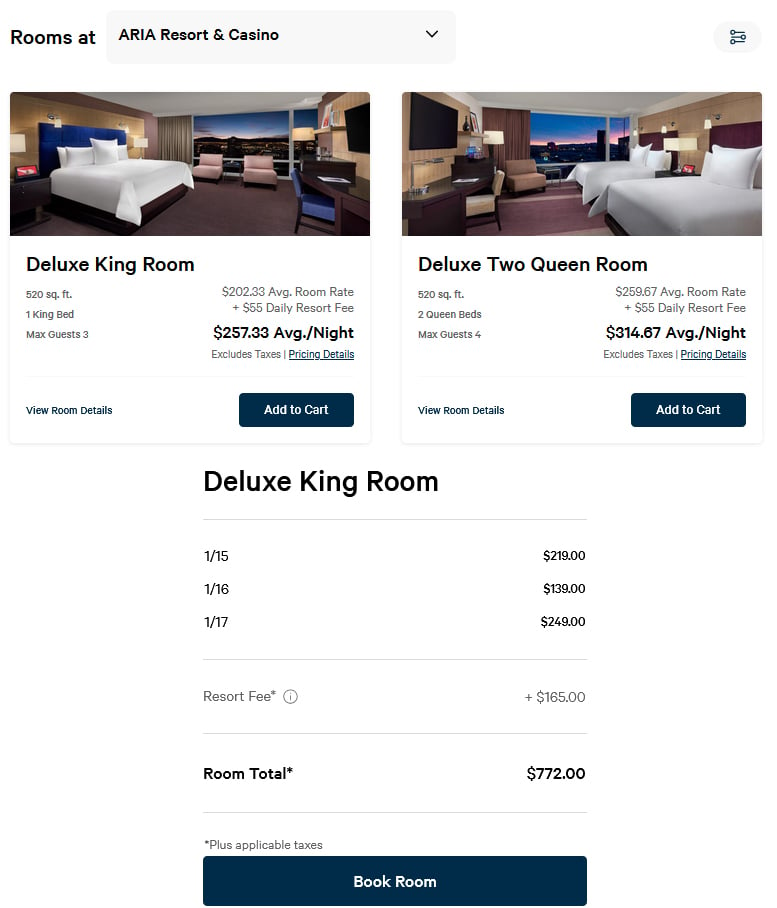FTC Cracks Down On Junk Ticket and Hotel Fees

Featured image: Bradley Wint/Gate Checked
The U.S. Federal Trade Commission (FTC) has made its final ruling on junk ticket and hotel fees, prohibiting live-event ticketing and short-term lodging companies from trying to hide these fees during the booking process.
In the past, many hotels would advertise nightly room rates, purposely leaving out extras such as resort fees, cleaning fees and so on. Potential customers are drawn in with bargain prices, but only find out at the very end that they have to pay additional fees and taxes, sometimes totaling the same as the room itself.
According to the FTC, consumers wasted as much as 53 million hours yearly while searching for stays and event tickets due bait-and-switch tactics employed by these companies.
“People deserve to know up-front what they’re being asked to pay—without worrying that they’ll later be saddled with mysterious fees that they haven’t budgeted for and can’t avoid,” said FTC Chair Lina M. Khan.
“The FTC’s rule will put an end to junk fees around live event tickets, hotels, and vacation rentals, saving Americans billions of dollars and millions of hours in wasted time.”
The new Junk Fees Rule requires live-event ticketing and short-term lodging companies to “clearly and conspicuously disclose the true total price inclusive of all mandatory fees whenever they offer, display, or advertise any price of live-event tickets or short-term lodging. Businesses cannot misrepresent any fee or charge in any offer, display, or ad for live-event tickets or short-term lodging.”
“In addition, the rule requires businesses to display the total price more prominently than most other pricing information. This means that the most prominent price in an ad needs to be the all-in total price—truthful itemization and breakdowns are fine but should not overshadow what consumers want to know: the real total.”
While the FTC has chosen not to force these entities to remove junk fees entirely, these businesses will have to reconsider their pricing strategy as they won’t be able to deceive customers as easily as they did before.
These businesses still have the option of excluding certain allowed fees and charges in the upfront price (e.g. taxes), but they are still required to clearly disclose this before the consumer is ready to make their payment.
“The rule requires businesses that exclude allowable fees up front to clearly and conspicuously disclose the nature, purpose, identity, and amount of those fees before consumers consent to pay. For instance, businesses that exclude shipping or taxes from the advertised price must clearly and conspicuously disclose those fees before the consumer enters their payment information.”
Even though the new regulations is already in effect, it will still take some time before hotels, short term stays and event ticket companies catch up.
When I think about junk fees, the MGM Resorts group always comes to mind. They’ve been masters at advertising steal-of-a-deal rooms on the Vegas strip, only to include mandatory resort fees and other taxes on the final checkout screen.
They have since updated their search pages, offering a more transparent pricing break down. Here’s an example from the Aria hotel. A search for three nights clearly shows the average nightly price with the included resort fees. If you click on the Pricing Details link, a pop-up shows the final pre-tax breakdown and total.

As MGM excludes taxes from its searches, this is clearly noted, and is added to the price on checkout. Customers can easily calculate their final nightly rates, with this example coming up to $772.00. With the 13.38% Las Vegas hotel tax added, the grand total comes up to $875.30.
I personally would have liked to see the calculated prices include the appropriate taxes, but this is a huge step forward, as it would force companies to potentially offer more competitive rates.



